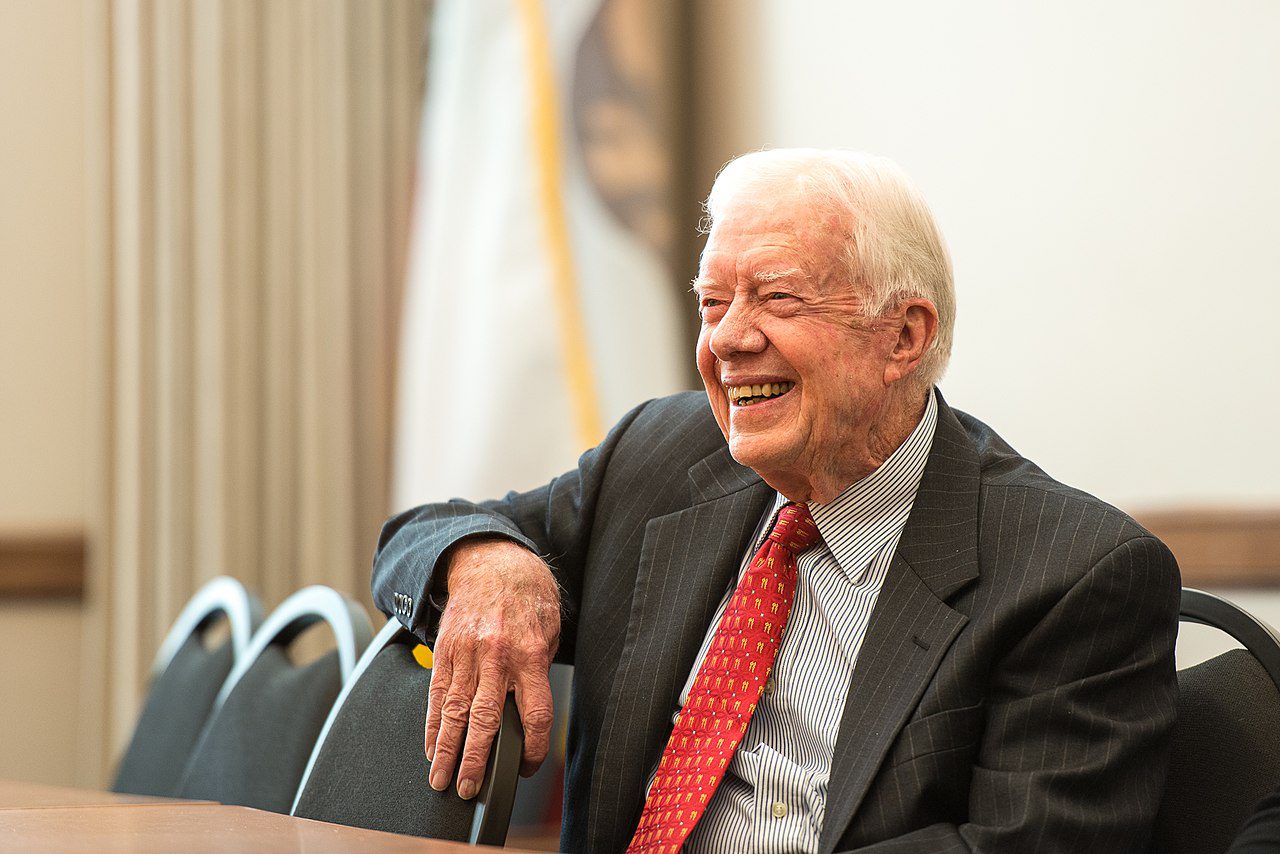By Cynthia Charlene Greason


FROM WIKIPEDIA COMMONS
James Earl Carter Jr. (October 1, 1924 – December 29, 2024) was an American politician and humanitarian who served as the 39th president of the United States from 1977 to 1981. A member of the Democratic Party, Carter previously served in the Georgia State Senate from 1963 to 1967 and as the 76th governor of Georgia from 1971 to 1975. He was the longest-lived president in U.S. history and the first to live to 100 years.
Born and raised in Plains, Georgia, Carter graduated from the U.S. Naval Academy in 1946 and joined the U.S. Navy‘s submarine service. He returned home after his military service and revived his family’s peanut-growing business. Carter opposed racial segregation, supported the growing civil rights movement, and became an activist within the Democratic Party. Carter served in the Georgia State Senate from 1963 to 1967 and then as Governor of Georgia from 1971 to 1975. As a dark-horse candidate not well known outside Georgia, he won the Democratic nomination and narrowly defeated the incumbent president, Gerald Ford of the Republican Party, in the 1976 presidential election. Carter was the first president elected to represent a state from the Deep South since Zachary Taylor in 1848.
Carter pardoned all Vietnam War draft evaders on his second day in office. He created a national energy policy that included conservation, price control, and new technology. Carter successfully pursued the Camp David Accords, the Panama Canal Treaties, and the second round of Strategic Arms Limitation Talks. He also confronted stagflation. His administration established the U.S. Department of Energy and the Department of Education. He was the only president to serve a full term without appointing a justice to the Supreme Court. The end of his presidency was marked by the Iran hostage crisis, an energy crisis, the Three Mile Island accident, the Nicaraguan Revolution, and the Soviet invasion of Afghanistan. In response to the invasion, Carter escalated the Cold War by ending détente, imposing a grain embargo against the Soviets, enunciating the Carter Doctrine, and leading the multinational boycott of the 1980 Summer Olympics in Moscow. Carter defeated challenger Ted Kennedy in the 1980 Democratic Party presidential primaries but lost the general election in a landslide to Ronald Reagan, the Republican nominee.
After leaving the presidency, Carter established the Carter Center to promote and expand human rights, and received a Nobel Peace Prize in 2002 for his work in relation to it. He traveled extensively to conduct peace negotiations, monitor elections, and further the eradication of infectious diseases. Carter was a key figure in the nonprofit housing organization Habitat for Humanity. He also wrote numerous books, ranging from political memoirs to poetry, while continuing to comment on global affairs, with two of his books being on the Israeli–Palestinian conflict. Polls of historians and political scientists generally rank Carter as a below-average president. Scholars and the public more favorably view his post-presidency, which was the longest in U.S. history.
Carter died at his home in Plains, Georgia, on December 29, 2024, at the age of 100. His son, James E. Carter III, announced his death that afternoon. This followed his February 2023 decision to enter hospice care.
Shortly after the announcement, President Joe Biden released a statement honoring Carter’s legacy, calling him a “man of principle, faith, and humility.” The Biden administration also announced plans to hold an official state funeral, and a day of mourning for him on January 9, 2025.
